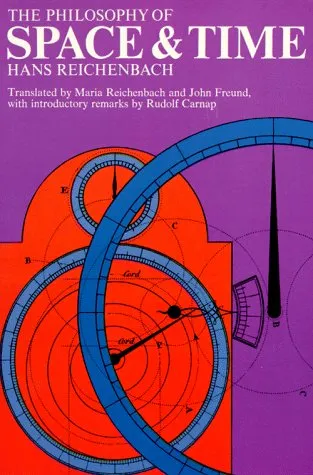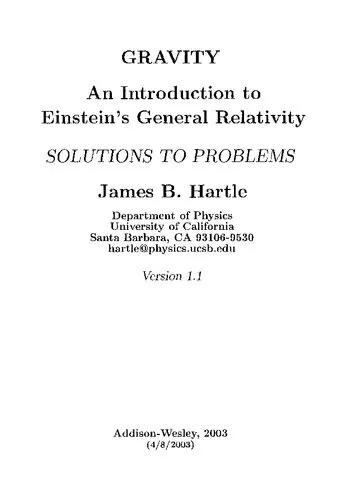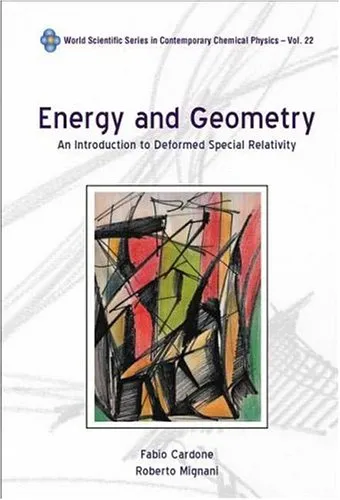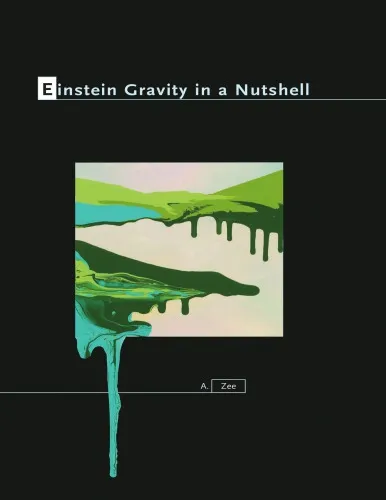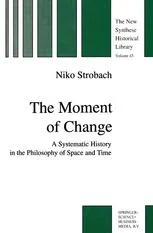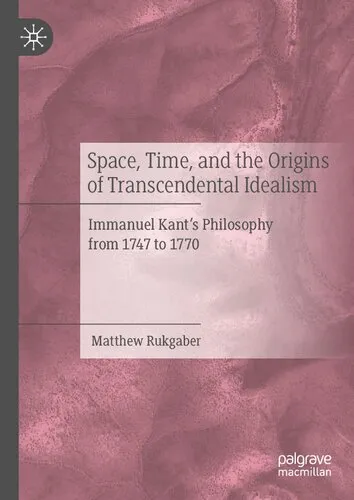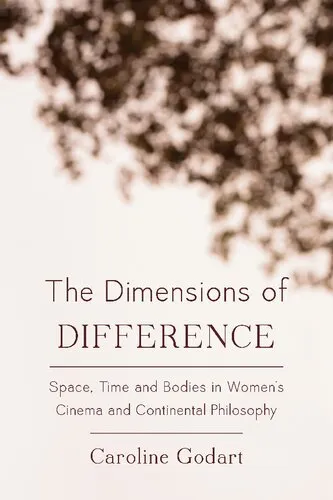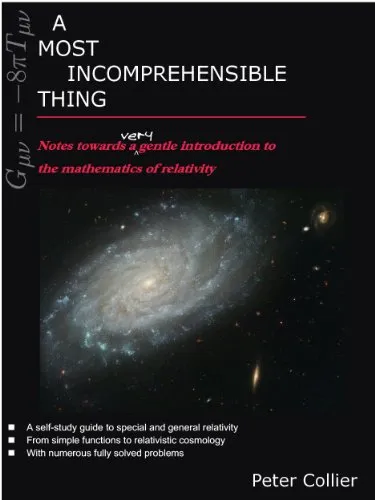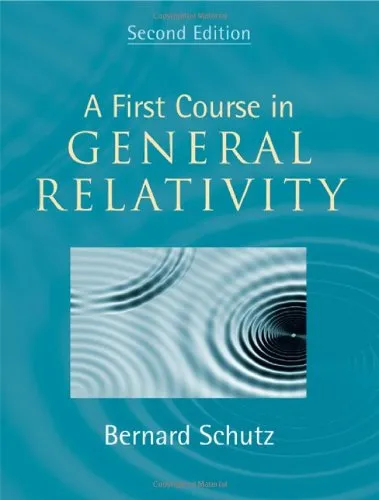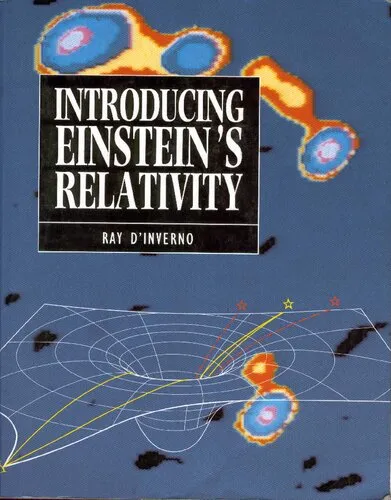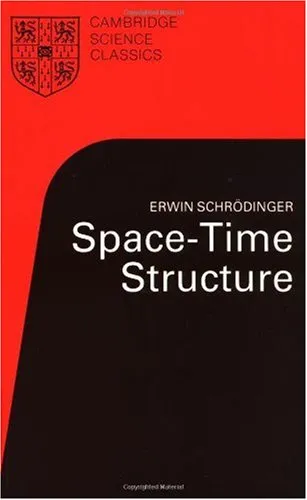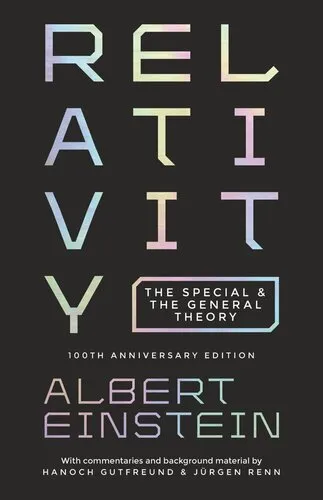The Philosophy of Space and Time
4.5
بر اساس نظر کاربران

شما میتونید سوالاتتون در باره کتاب رو از هوش مصنوعیش بعد از ورود بپرسید
هر دانلود یا پرسش از هوش مصنوعی 2 امتیاز لازم دارد، برای بدست آوردن امتیاز رایگان، به صفحه ی راهنمای امتیازات سر بزنید و یک سری کار ارزشمند انجام بدینکتاب های مرتبط:
معرفی کتاب
کتاب «The Philosophy of Space and Time» اثری برجسته از هانس رایشنباخ است که به بررسی مسائل فلسفی مرتبط با فضا و زمان میپردازد. هانس رایشنباخ با تحلیل دقیق و علمی خود، خوانندگان را به دنیای پیچیده فیزیک و فلسفه مدرن وارد میکند.
خلاصهای جامع از کتاب
این کتاب به چالشهای فلسفی و علمیای پرداخته میشود که نظریات جدید فیزیک در قرن بیستم به همراه آوردهاند. رایشنباخ به بررسی متافیزیک و مبانی نظریات Relativity و Quantum Mechanics میپردازد و ضمن تحلیل فلسفی این مسائل، سعی در توضیح پیچیدگیهای این نظریات دارد. او با استفاده از مثالهای علمی و تاریخی، مباحث خود را بسط میدهد و تبیین میکند که چگونه نظریات جدید مانند Relativity تصور ما از فضا و زمان را دگرگون ساختهاند.
نکات کلیدی
- ارتباط بین فیزیک و فلسفه و تأثیر آنها بر درک انسان از واقعیت.
- تحلیل مفاهیم پایهای فضا و زمان از دیدگاه علمی و فلسفی.
- نقش نظریات Quantum Mechanics و Relativity در تغییر درک انسان از جهان.
جملات معروف از کتاب
«تبیین نظریه نسبیت، تصورات قدیمی از فضا و زمان را به چالش کشیده و نیاز به دیدگاههای جدید فلسفی را برای درک آنها ایجاد کرده است.»
«تعامل میان فیزیک و فلسفه، بنیانهای دانش انسانی را تحقق میبخشد.»
اهمیت این کتاب
کتاب «The Philosophy of Space and Time» نقشی کلیدی در پیوند دادن مباحث علمی و فلسفی بازی میکند و تأثیر عمیقی بر درک ما از جهان فیزیکی دارد. این کتاب به دانشجویان، محققان و علاقهمندان به فلسفه و فیزیک کمک میکند تا دیدگاههایی گستردهتر و عمیقتر نسبت به مفاهیم پیچیده و جالب فضا و زمان پیدا کنند. علاوه بر این، رایشنباخ با زبانی علمی ولی قابل فهم، امکان درک بهتر مباحث نظریات پیچیده را فراهم میآورد.
Hans Reichenbach's seminal work, "The Philosophy of Space and Time," presents a thorough examination of the foundational concepts that underpin our understanding of the physical universe. First published in the early 20th century, this book is a landmark text in the philosophy of science, offering insights that have influenced philosophers, physicists, and mathematicians alike.
Detailed Summary
Within the pages of "The Philosophy of Space and Time," Reichenbach delves into the intricate relationships between space, time, and relativity. He explores how Einstein’s theories revolutionized previous understandings, challenging the classical conception of a fixed, absolute space and time framework. Reichenbach meticulously analyzes the philosophical implications of these theories, discussing key concepts such as simultaneity, the nature of the continuum, and the interplay between empirical knowledge and theoretical structures.
The book is divided into distinct sections that comprehensively unpack the conceptual shifts following the advent of relativity, offering readers a gateway into the profound changes that the physics community grappled with during the early 1900s. Throughout this exploration, Reichenbach consistently emphasizes the importance of logical and philosophical inquiry in understanding physical theories.
Key Takeaways
- Understanding the impact of Einstein’s relativity on the traditional Newtonian paradigm.
- The inseparable relationship between empirical data and theoretical constructs in forming scientific knowledge.
- The philosophical ramifications of space-time constructs, including questions of reality versus mathematical abstraction.
- An in-depth analysis of simultaneity and how new physics transformed previously held axioms.
- The role of a priori knowledge in scientific discovery and interpretation.
Famous Quotes from the Book
"The decision about the philosophical significance of the theory of relativity cannot be evaded with the naive realism of uncritical naturalism."
"We are not only confronted by facts to which our concepts must be fitted; rather, these concepts play a role in the discovery, fixation, and representation of facts."
Why This Book Matters
Reichenbach's "The Philosophy of Space and Time" is more than just a philosophical analysis of Einstein's theories; it is a critical framework for considering the broader conceptual evolution in the face of scientific discovery. By marrying rigorous philosophical thought with scientific innovation, Reichenbach provides a vital resource for understanding the philosophical underpinnings that continue to influence contemporary debates in physics and metaphysics.
His work is indispensable to students and scholars of philosophy and physics who seek to deepen their understanding of the philosophical impact of relativity. The book's insights remain relevant today as we continue to explore the vast complexities of our universe, highlighting the enduring necessity of philosophical inquiry in scientific exploration.
دانلود رایگان مستقیم
شما میتونید سوالاتتون در باره کتاب رو از هوش مصنوعیش بعد از ورود بپرسید
دسترسی به کتابها از طریق پلتفرمهای قانونی و کتابخانههای عمومی نه تنها از حقوق نویسندگان و ناشران حمایت میکند، بلکه به پایداری فرهنگ کتابخوانی نیز کمک میرساند. پیش از دانلود، لحظهای به بررسی این گزینهها فکر کنید.
این کتاب رو در پلتفرم های دیگه ببینید
WorldCat به شما کمک میکنه تا کتاب ها رو در کتابخانه های سراسر دنیا پیدا کنید
امتیازها، نظرات تخصصی و صحبت ها درباره کتاب را در Goodreads ببینید
کتابهای کمیاب یا دست دوم را در AbeBooks پیدا کنید و بخرید
1413
بازدید4.5
امتیاز0
نظر98%
رضایتنظرات:
4.5
بر اساس 0 نظر کاربران
Questions & Answers
Ask questions about this book or help others by answering
No questions yet. Be the first to ask!
